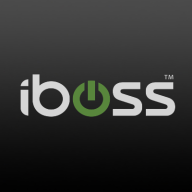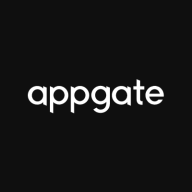


Zscaler Zero Trust Exchange Platform and Zero Trust platform are competing products in the zero trust security market. Zscaler appears to have the upper hand in deployment and customer service, while Zero Trust platform offers superior features that some buyers believe justify its price.
Features: Zscaler Zero Trust Exchange Platform provides robust internet security, advanced threat protection, and seamless scalability, focusing on secure access to cloud resources. Zero Trust platform emphasizes comprehensive network security, identity verification, and granular access controls. The latter offers more extensive integration capabilities, appealing to enterprises needing complex security operations.
Ease of Deployment and Customer Service: Zscaler Zero Trust Exchange Platform offers a straightforward deployment process with responsive support, reducing time and effort for organizations. Zero Trust platform might involve a more complex setup but offers extensive customization. Zscaler's ease of use and customer service are typically viewed more favorably in direct comparisons.
Pricing and ROI: Zscaler Zero Trust Exchange Platform tends to have a higher initial setup cost but promises significant ROI due to its efficient operation and management. Zero Trust platform provides a more flexible pricing model but may require a more considerable upfront investment. Despite costs, buyers often find the Zero Trust platform's range of features justifies the investment.


iboss offers a comprehensive security platform designed for diverse use cases such as web filtering, data loss protection, corporate proxy services, and URL filtering.
iboss integrates advanced features to address dynamic security needs, leveraging its strength in SASE, ZTNA, AI initiatives, and cloud integration, while ensuring seamless operations for remote work. It excels in historical forensics, malware protection, and flexible cloud deployments. Users benefit from comprehensive traffic scanning, robust malware detection, and PaaS capabilities that reduce hardware management. An intuitive admin console ensures efficient management with content filtering and low false positives. SSL decryption enhances security, while DLP protects data in AI conversations. Deployment is rapid and scalable, allowing effortless integration with emerging technologies.
What features does iboss offer?
What benefits and ROI should users consider?
iboss finds significant application in sectors such as education, where web filtering for K-12 is crucial, and in corporate environments requiring robust proxy services and URL filtering for network security. Its adaptability is essential in scenarios demanding flexible, decentralized security frameworks, particularly for remote work setups.
Organizations utilize Zero Trust platform to secure remote work environments, protect sensitive data, and manage access controls. Users value its robust authentication mechanisms, ease of integration with existing systems, and the enhanced security posture it offers.
Zero Trust platform is recognized for identifying and mitigating threats in real-time, ensuring network integrity and maintaining compliance with regulatory standards. It is scalable and adaptable to evolving cyber threats, making it a preferred choice. However, users have noted that system configuration can be complex, and the learning curve is steep. Occasional performance issues with scalability and latency are reported, as well as the need for better integration options, more comprehensive documentation, and enhanced customer support. Improved reporting capabilities and more customizable features are also areas for improvement. Some users find the pricing could be more competitive.
What are the most important features?In financial services, Zero Trust platform helps in safeguarding transactions and sensitive customer data. In healthcare, it protects patient information and ensures compliance with health regulations. Manufacturing sectors use it to secure intellectual property and confidential design documents. In education, it helps in protecting student information and research data while supporting remote learning environments.
Zscaler Zero Trust Exchange Platform acts as a VPN alternative for secure remote access, cloud protection, and zero-trust strategies. It enables secure data transmission, supports remote work, and enhances compliance through a cloud-based architecture, offering improved performance and simplified management.
Designed for organizations seeking secure application access and robust data protection, Zscaler Zero Trust Exchange Platform delivers a comprehensive solution through seamless VPN connectivity, data loss prevention, and SSL inspection. Its cloud integration ensures scalability and reliability, while its interface provides intuitive management. Companies benefit from automatic secure access, minimizing constant authentication needs, and safeguarding sensitive data. The platform allows easy deployment and integration with diverse identity providers, granting granular control for access and application segmentation. Despite powerful capabilities, enhancements are needed in speed, bandwidth, and legacy support, with users noting interface and configuration challenges.
What are the key features of Zscaler Zero Trust Exchange Platform?In specific industries, Zscaler Zero Trust Exchange has been implemented to enhance security protocols in fields like finance and healthcare. By prioritizing data protection and compliance, it assists companies in safely managing sensitive information and meeting regulatory requirements. Organizations leverage its features to ensure secure operations across remote and cloud environments, adapting to industry-specific needs with customizable access and security controls.
We monitor all ZTNA as a Service reviews to prevent fraudulent reviews and keep review quality high. We do not post reviews by company employees or direct competitors. We validate each review for authenticity via cross-reference with LinkedIn, and personal follow-up with the reviewer when necessary.